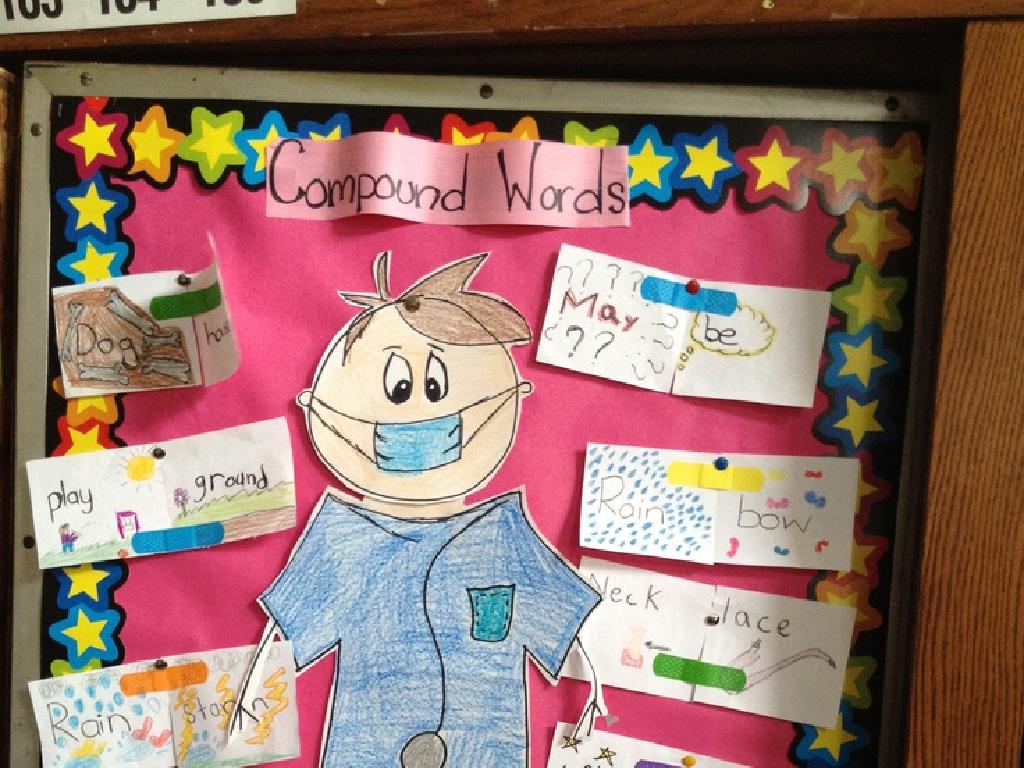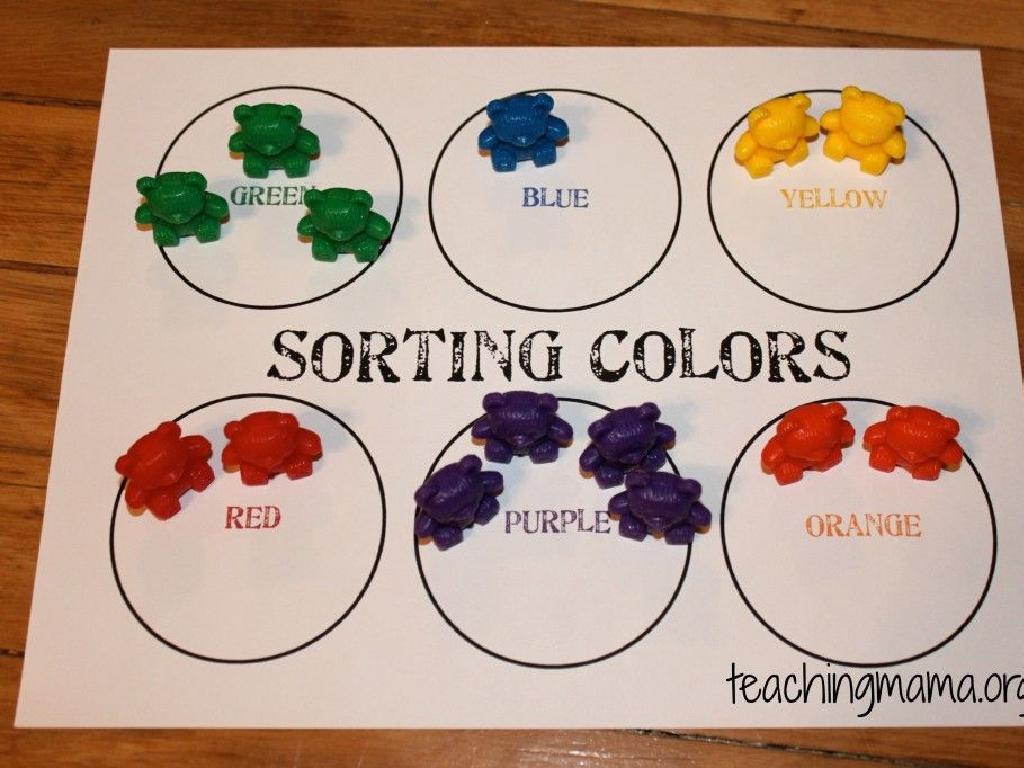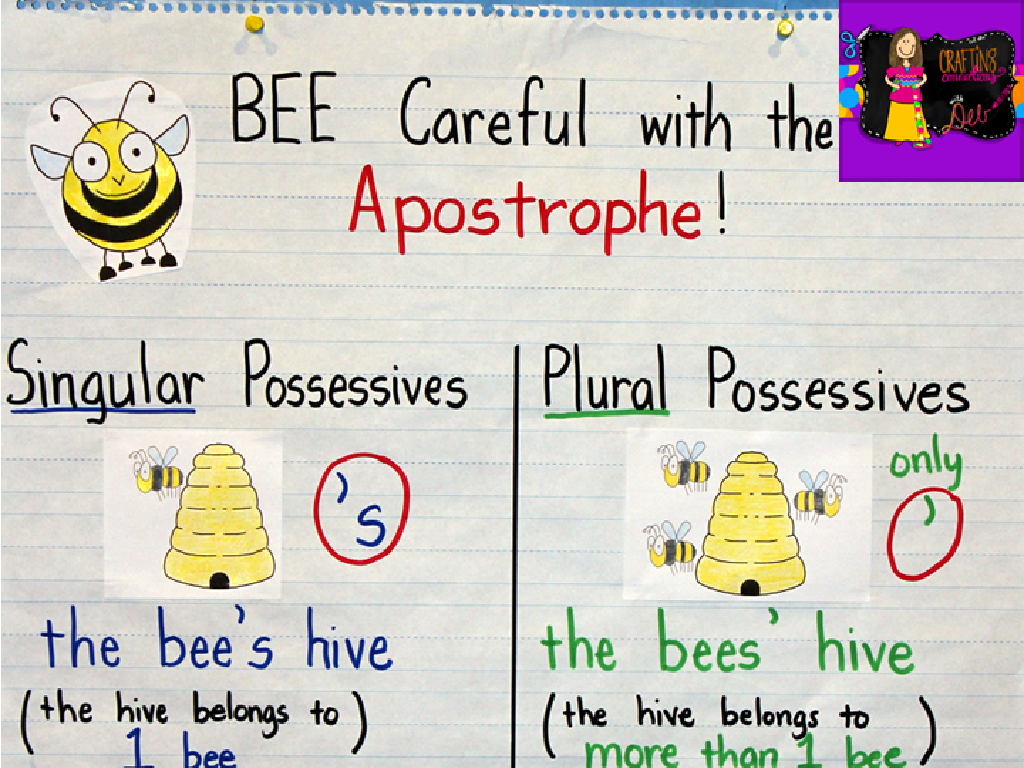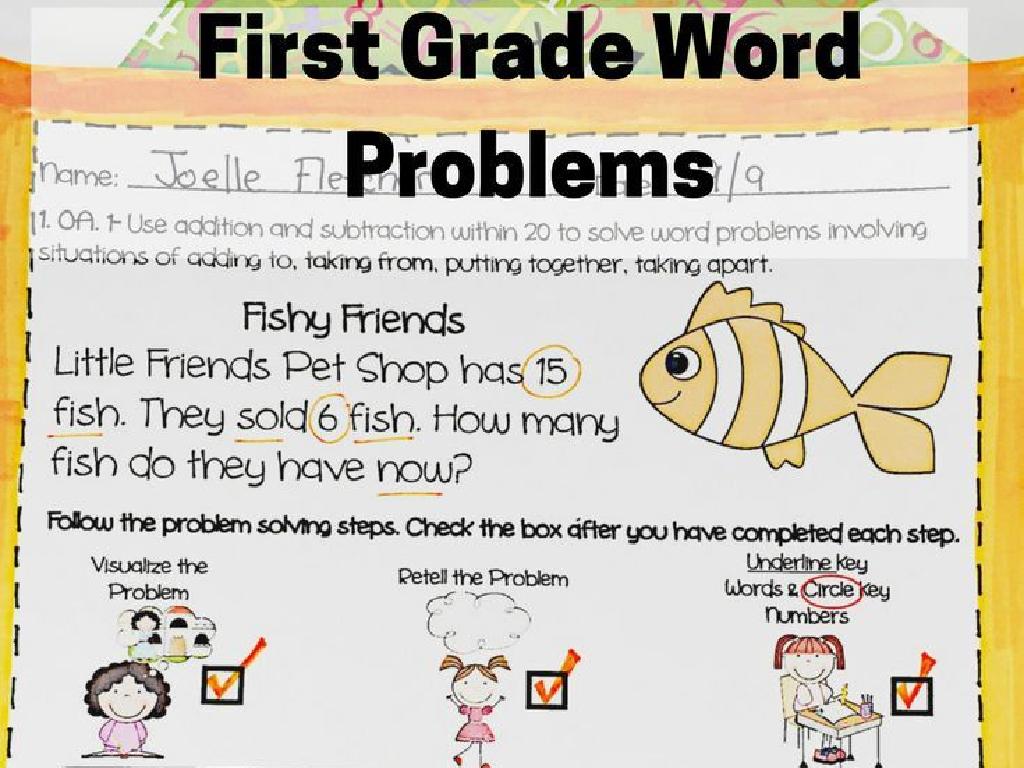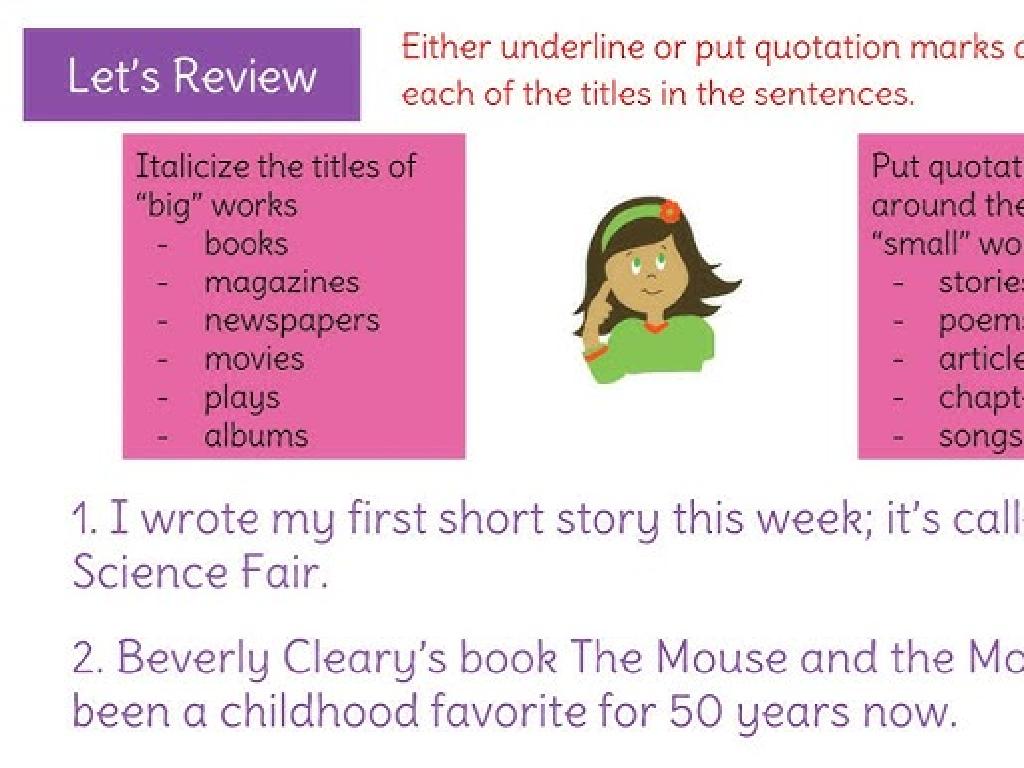Select The Letters That Make A Given Sound
Subject: Language arts
Grade: Third grade
Topic: Irregular Words
Please LOG IN to download the presentation. Access is available to registered users only.
View More Content
Exploring Irregular Words
– What are Irregular Words?
– Words that don’t follow common phonetic rules.
– Limits of ‘sounding out’
– Some words can’t be decoded using sounds alone.
– Daily examples of Irregular Words
– ‘said’, ‘enough’, ‘through’ don’t sound like they look.
– Understanding through practice
– We’ll practice with more examples in class.
|
This slide introduces the concept of irregular words to third-grade students, emphasizing that while many words can be ‘sounded out’ using phonics, irregular words do not follow these rules. Explain that these are words they will often see in reading and use in writing. Provide examples like ‘said’, ‘enough’, and ‘through’, which do not follow the typical phonetic patterns they have learned. Encourage students to recognize these words by sight and use context to understand them. In the next class, plan interactive activities where students can practice identifying and using irregular words in sentences to reinforce their learning.
Sounds and Letters: Exploring Irregular Words
– Review phonics basics
– Phonics helps us match sounds to letters.
– Linking sounds to letters
– Most words follow phonics rules, like ‘cat’ for /c/-/a/-/t/.
– Identifying irregular words
– Words that don’t follow rules, like ‘said’.
– Practice with examples
– Find irregular words in sentences.
|
Begin with a quick recap of phonics to remind students how sounds correlate with letters. Explain that while many words are ‘regular’ and follow phonics rules, some words are ‘irregular’ and don’t fit the usual patterns. Provide examples of irregular words and demonstrate how their spelling and pronunciation differ from what one might expect based on phonics rules. Engage the class with practice activities where they identify irregular words within sentences, reinforcing their understanding of the concept.
Identifying Sounds in Words
– Listen to word sounds
– Hear each part of the word to find sounds
– Practice with familiar words
– Use words we know to learn about sounds
– Clap out syllables in words
– Clap for each syllable to break the word
– Understanding irregular words
– Some words don t sound like they look
|
This slide is aimed at helping third-grade students understand how to identify different sounds within words, which is a key skill in reading and spelling, especially when dealing with irregular words. Start by having students listen carefully to the pronunciation of words and identify distinct sounds. Practice this skill using common words that the students are already familiar with. Incorporate a fun activity by clapping out syllables, which helps students break down words into smaller, more manageable parts. Highlight the concept of irregular words, which do not always follow standard phonetic rules, and provide examples. During the activity, encourage students to listen for sounds that may not match the spelling. This interactive approach will help solidify their understanding of how sounds correlate with letters and syllables.
Mastering Irregular Words
– What are irregular words?
– Words that don’t follow common phonetic rules, like ‘said’ or ‘enough’.
– Let’s read some together
– We’ll read words like ‘could’, ‘would’, ‘should’ as a class.
– Tips to remember irregular words
– Use flashcards, repetition, and writing to memorize these tricky words.
– Practice makes perfect
|
This slide is aimed at helping third-grade students understand and practice irregular words, which are words that do not follow the standard rules of phonics. Start by explaining what irregular words are and provide examples. Engage the class in reading some irregular words aloud together to promote pronunciation skills. Share tips for remembering how to read these words, such as using visual aids like flashcards, repeating the words multiple times, and writing them out in sentences. Emphasize the importance of practice and encourage students to try reading these words at home as well. The goal is to build their confidence in reading and recognizing irregular words in their daily reading.
Matching Sounds to Irregular Words
– Activity: Match the sound
– Listen to the sound, then choose the word that matches it
– Group practice with cards
– Work together using cards to connect sounds to words
– Challenge: Spot the irregular word
– Look for a word that doesn’t follow usual sound rules
– Share your answers
|
This slide introduces an interactive class activity focused on connecting sounds to irregular words. Begin with a listening activity where students hear a sound and then select from word cards the one that matches the sound. Move on to group practice, where students work in small teams with cards that have words and sounds, matching them correctly. Introduce a challenge by asking students to identify words that don’t follow the typical phonetic rules, known as irregular words. After the activity, have students share their answers and discuss why some words are considered irregular. This exercise will help students understand that not all words follow the common sound-letter patterns and will enhance their phonetic and decoding skills.
Class Activity: Sound Detective
– Become a Sound Detective!
– Find irregular words in a story
– Look for words that don t follow usual sound rules
– Highlight the words you find
– Use a highlighter to mark these special words
– Share your findings with the class
– Discuss the words and sounds with your classmates
|
In this engaging class activity, students will act as ‘Sound Detectives’ to identify irregular words within a given story. These are words that don’t follow the typical phonetic rules they’ve learned. Provide students with highlighters and a short story or passage. Instruct them to carefully read through the text and highlight any words that seem irregular in their sound patterns. Once they have completed this task, organize a sharing session where each student can present the words they found and discuss the unique sounds. This activity will help reinforce their understanding of phonetics and irregular words, as well as improve their reading comprehension skills. Possible variations of the activity could include working in pairs, creating a class chart of irregular words, or even writing their own sentences using the irregular words they found.
Wrapping Up: Sounds and Irregular Words
– Recap of sound-letter connections
– Importance of irregular words
– Irregular words help with reading fluency and comprehension.
– Looking forward to more Language Arts
– Get excited for the next fun-filled Language Arts lesson!
– Celebrate our learning today
– Share what you’ve learned and feel proud of your progress.
|
As we conclude today’s lesson, it’s important to review the key points about how certain letters and combinations can represent different sounds, especially in irregular words. Understanding these words is crucial for reading fluency and comprehension, as they often do not follow standard phonetic rules and can be tricky for young readers. Looking ahead, we should prepare the students for the next Language Arts lesson by building anticipation and ensuring they understand that learning is a continuous adventure. Celebrate the day’s achievements by allowing students to share their favorite irregular words and the sounds they’ve mastered, reinforcing their learning and boosting their confidence.
Homework Challenge: Irregular Word Hunt
– Find 5 irregular words in a book
– Irregular words don’t follow usual phonetic rules
– Write the words down for class
– Keep a list to discuss in our next lesson
– Be ready to explain their irregularity
– Think about what makes them different from regular words
– Share with classmates next class
|
This homework task is designed to help students recognize and understand irregular words, which are words that do not follow standard spelling or sounding rules. Encourage students to pick their favorite book to make the activity more engaging. They should look for words that can’t be decoded using typical phonics approaches. In the next class, students will have the opportunity to discuss these words and their unique properties, fostering a deeper understanding of irregular words and how they fit into the English language. This will also help them with reading comprehension and spelling. Provide examples of irregular words like ‘enough’, ‘island’, or ‘knight’ to get them started.

